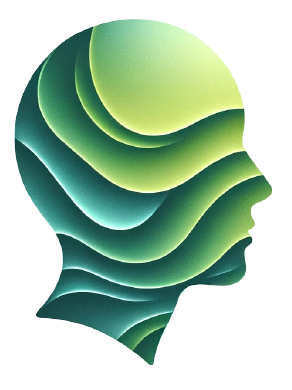Migraine Medications: An Overview of Time-tested and New Migraine Treatments


Migraine is a debilitating neurological disorder characterized by recurrent headaches often accompanied by sensory disturbances and other symptoms. The management of migraines typically involves a combination of abortive migraine treatments to alleviate symptoms during an attack and migraine preventive medications (as wells as non-pharmacological preventive measures) to reduce the frequency and severity of future episodes. In recent years, there have been advancements in migraine medications, offering more effective options for both acute relief and prevention.
Key takeaways
- Migraine medications include many options for stopping and preventing attacks.
- Non-drug migraine relief can compare to new migraine medications
- Medical issues, age, and other factors determine your best migraine treatments.
Migraine Medications
Migraine treatments fall into two categories: Acute and preventive. Acute migraine medications include abortive, “rescue medications” taken when a migraine attack occurs or is imminent. Migraine prevention medications (or, in medical terms, migraine prophylaxis medications) are taken proactively to help reduce the frequency and intensity of migraine attacks.

This article looks at common migraine medications for both acute and preventive treatment, as well as the risks and side effects associated with those migraine medications. Because these side effects can eliminate these drugs from the migraine medications list for certain individuals, this article also looks at effective and well-researched non-pharmacological options that do not have the drug interactions and concerning side effects that come with over-the-counter and prescription migraine medications.
Abortive Migraine Medications
- Triptans: Triptan migraine medications are a class of drugs specifically designed to target migraines by constricting blood vessels and blocking pain pathways in the brain. Triptans are commonly used as first-line abortive migraine medications for moderate to severe migraines. Examples include sumatriptan, rizatriptan, and eletriptan.
- Nonsteroidal Anti-Inflammatory Drugs (NSAIDs): NSAIDs such as ibuprofen and naproxen sodium are often used as abortive migraine medications to reduce inflammation and pain.
- Combination Migraine Medications: Some medications combine a triptan with an NSAID or caffeine to enhance their effectiveness in treating migraines.
New Migraine Treatments: Acute
- Ditans: Lasmiditan is a newer class of abortive migraine medications that work as serotonin receptor agonists without causing vasoconstriction, making them suitable for patients with cardiovascular risk factors. However, side effects include dizziness and considerable fatigue.
- Dihydroergotamine (Migranal, Trudhesa). Available as a nasal spray or injection, this abortive migraine medication is most effective when taken shortly after the start of migraine symptoms and for migraines that tend to last longer than 24 hours. Side effects can include worsening of migraine-related vomiting and nausea.
- Intranasal zavegepant (Zavzpret). The Food and Drug Administration recently approved this nasal spray as an abortive migraine medication. Zavegepant is a gepant that can bring migraine pain relief within 15 minutes to 2 hours after taking a single dose. The medicine continues working for up to 48 hours. It also can improve other symptoms related to migraine, such as nausea and sensitivity to light and sound. Common side effects of zavegepant include a change in sense of taste, nasal discomfort and throat irritation.
Preventive Migraine Medications
- Beta-blockers: Drugs like propranolol and metoprolol are commonly prescribed migraine prevention medications. Beta-blockers work by reducing the frequency and severity of migraines by stabilizing blood vessels and altering serotonin levels.
- Anticonvulsants: Certain anticonvulsant medications, such as topiramate and valproate, are effective migraine prevention medications that work by stabilizing electrical activity in the brain.
- Calcium Channel Blockers: Drugs like verapamil are sometimes used in migraine prevention treatment to relax blood vessels and reduce the frequency of attacks.
New Treatments for Migraine-Prevention Medications
- CGRP Antagonists: Monoclonal antibodies targeting calcitonin gene-related peptide (CGRP) or its receptor have emerged as a novel migraine-prevention treatment. These medications include erenumab, fremanezumab, and galcanezumab. They are administered regularly by injection.
- Oral calcitonin gene-related peptides antagonists, known as gepants. Ubrogepant (Ubrelvy) and rimegepant (Nurtec ODT) are oral gepants approved as new treatments for migraine in adults. Rimegepant may also be taken as needed to treat migraine attacks. Common side effects include dry mouth, nausea and too much sleepiness. Gepants should not be taken with some medicines used to treat cancer.
- Atogepant (Qulipta). This migraine medication (a gepant) helps with migraine prevention. It’s a tablet taken by mouth daily. Potential side effects may include nausea, constipation and fatigue.
Common Side Effects of Migraine Medications

Common side effects of OTC and prescription migraine medications may include:
- Nausea
- Dizziness
- Fatigue
- Dry mouth
- Flushing
- Gastric bleeding (with NSAIDs)
- Injection site reactions (for injectable medications)
- Interactions with other commonly used medications – including antidepressants
Serious side effects of migraine medications are rare but may include serotonin syndrome (with certain medications), cardiovascular events (especially with triptans), and medication overuse headaches (MOHs).
MOH occurs when migraine medications — including NSAIDs and prescription painkillers—are used regularly. Using them as little as four times a month can induce MOH. This is because whenever these migraine medications are not being used, the withdrawal can actually trigger migraines.
Who Should Not Take Migraine Medications
Certain individuals should avoid or use caution with migraine medications . Below is a list of people who are typically advised against using common migraine medications.
- Those with uncontrolled hypertension or cardiovascular disease (especially triptans)
- Pregnant or breastfeeding women (depending on the medication)
- Individuals with liver or kidney impairment (depending on the medication)
- Patients with a history of medication overuse headaches
- Young children
- The elderly
As noted earlier, the restrictions that apply to most migraine medications may not apply when using non-pharmacological migraine treatments presented below.
Non-pharmaceutical Alternatives to Migraine Medications

Nutritional Supplementation for migraine prophylaxis (prevention)
- Magnesium: Magnesium plays a crucial role in various physiological processes, including muscle function and neurotransmitter regulation. Low magnesium levels have been linked to an increased need for migraine treatment, and supplementation may help reduce migraine frequency and severity.
- Riboflavin (Vitamin B2): Riboflavin is involved in cellular energy production and has antioxidant properties. Studies have shown that riboflavin supplementation can be an important component of migraine treatment, leading to a significant decrease in migraine frequency, particularly in individuals with specific genetic variations.
- Coenzyme Q10 (CoQ10): CoQ10 is a powerful antioxidant that supports cellular energy production and mitochondrial function. In studying CoQ10 in migraine prophylaxis, research suggests CoQ10 supplementation may reduce the frequency and severity of migraine attacks.
- Dolovent™ is a specialized nutritional supplement formulated specifically as an alternative to migraine medications. It contains a combination of key ingredients that support healthy brain and central nervous system function (including those mentioned above) which have individually demonstrated benefits in migraine treatment.
- Butterbur: An Herbal Remedy. Butterbur (Petasites hybridus) is a perennial herb native to Europe, Asia, and North America. It has a long history of medicinal use, dating back to ancient times, particularly for treating headaches and migraines. Butterbur contains active compounds such as petasin and isopetasin, which possess anti-inflammatory properties and help prevent blood vessel spasms.
Numerous clinical migraine-prevention studies have investigated the effectiveness of butterbur. Research suggests that butterbur may reduce the frequency of migraine attacks and alleviate associated symptoms such as pain and nausea. In fact, a study shows that the effectiveness of butterbur for migraine prevention compares with the effectiveness of CGRP-antagonist migraine medications.[i]
However, it’s essential to choose a butterbur product that is free of pyrrolizidine alkaloids (PA), which can be toxic to the liver and cause adverse effects. [ii]For this reason, doctors recommend Petadolex® brand butterbur for migraine prophylaxis treatment. Petadolex is made using a patented extraction process that removes all detectable traces of liver toxins while also extracting the highest potency petasins and isopetasins. - Lifestyle “Treatments” for Migraine Prevention: Non-medication options for migraine prevention may include lifestyle modifications. Talk with your healthcare provider about adopting prevention strategies such as stress management; adequate sleep; regular meals and exercise; and using a migraine diary to identify and avoid your own unique migraine triggers.
- Neuromodulation Devices: Devices such as transcranial magnetic stimulation (TMS) and non-invasive vagus nerve stimulation (nVNS) offer non-pharmacological migraine treatments for acute relief.
Dolovent™ and Petadolex® are the most common migraine non-medication options healthcare professionals have recommended for decades. They come with far fewer drug interactions than common and new migraine medications, and may be used even by children and the elderly.

As with any supplement or migraine treatment, it’s essential to consult with a healthcare professional, especially if you are pregnant, nursing, or taking other medications. While natural remedies can be effective for some individuals, they may not work for everyone, and individual responses may vary, just as results from migraine medications may vary.
Conclusion
While there are numerous abortive migraine medications and migraine-prevention medications, pharmaceuticals can come with serious side effects. These concerns prompt many migraine sufferers to seek natural prevention strategies. Working closely with your health healthcare provider can help you map out your own best plan for reducing and managing your migraines to enjoy more migraine-free days.
Sources

Natural Remedies
2 Aug 2024
5 min read
Can weather cause migraine headaches? A forecast for fewer headache days
For centuries, individuals afflicted with migraines have reported a curious phenomenon: their headaches seem to wax and wane with changes in the weather. From the onset of a storm, to shifts in temperature, humidity or barometric pressure, the connection between migraine and weather has long captured the attention of scientists and sufferers alike. In this […]

Natural Remedies
2 Aug 2024
5 min read
Migraine and Sleep: Stopping a vicious circle
Migraines are triggered by a complex interplay of genetic, environmental, and neurological factors. Among these factors, sleep disturbances have been consistently linked to the onset and exacerbation of migraine attacks. Studies have shown that disruptions in the normal sleep cycle, such as irregular sleep patterns or insomnia, can trigger migraine attacks in susceptible individuals1. Migraines […]

Mind-Body Techniques
2 Aug 2024
5 min read
Triptans for Migraines: A Comprehensive Guide
Triptan medications have long been a mainstay of migraine treatment. In this article, we delve into what triptans are, how they work, potential triptan side effects, alternatives, and considerations for special populations such as pregnant individuals. What Are Triptans? Triptans are a class of drugs specifically designed to treat migraines. They work by targeting serotonin […]



